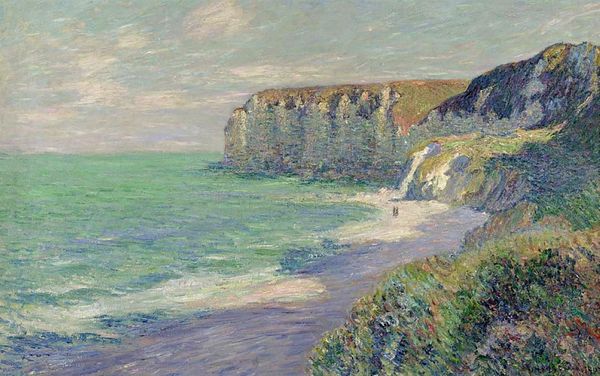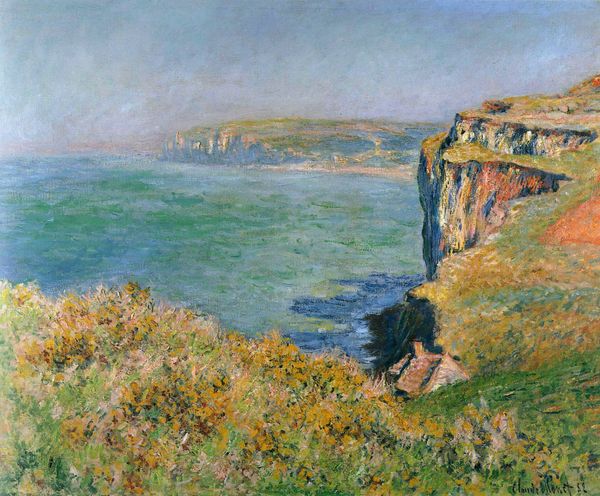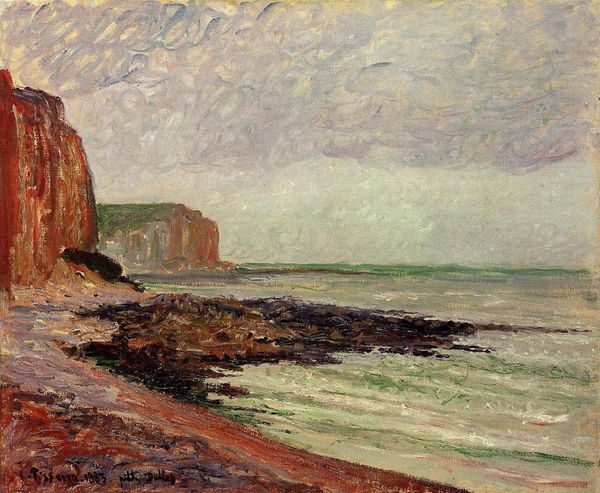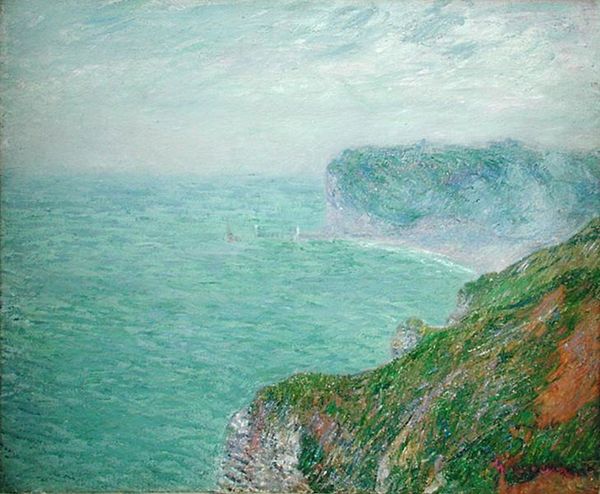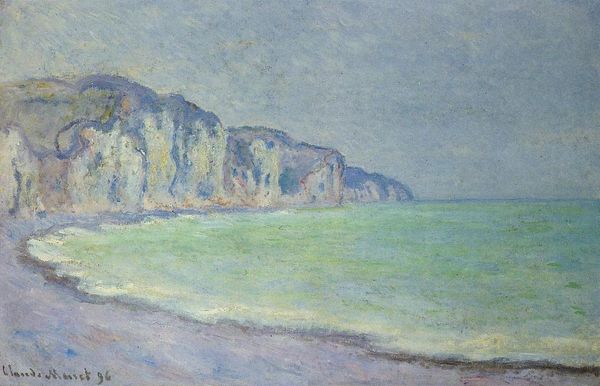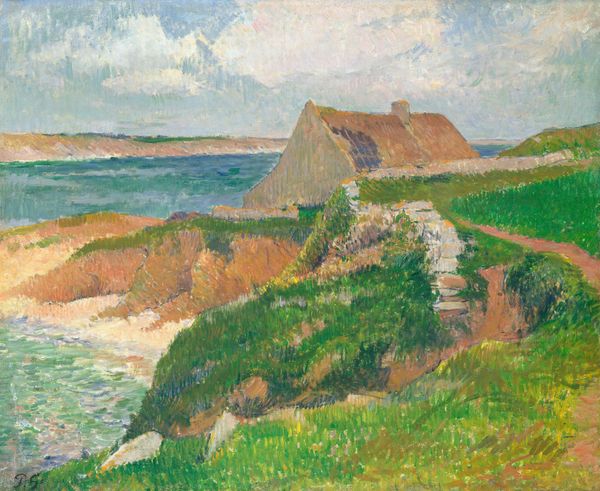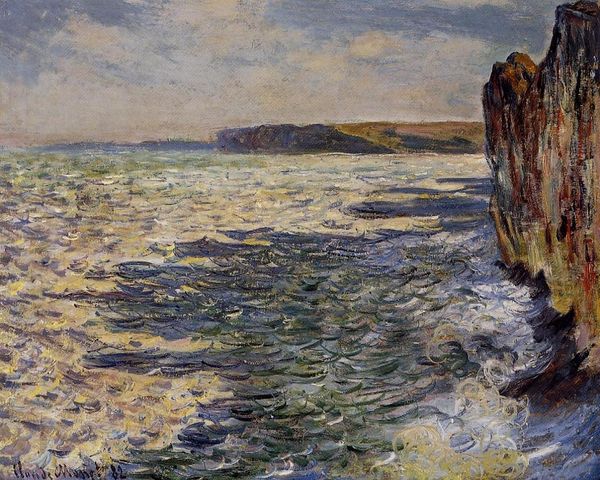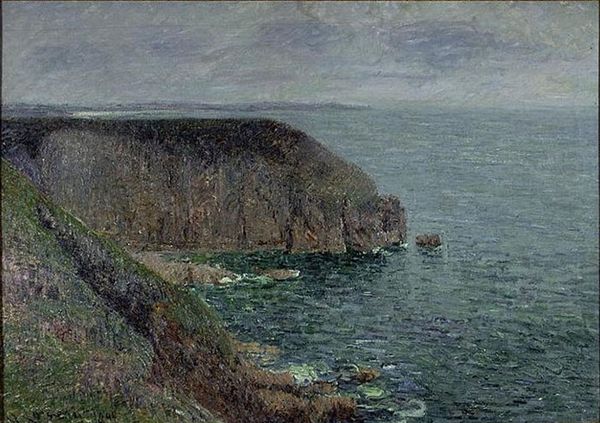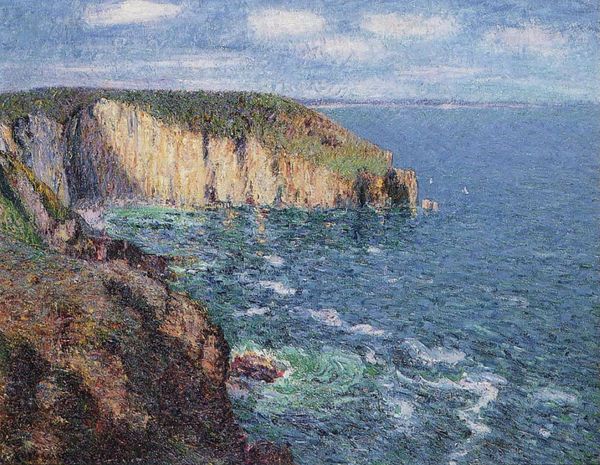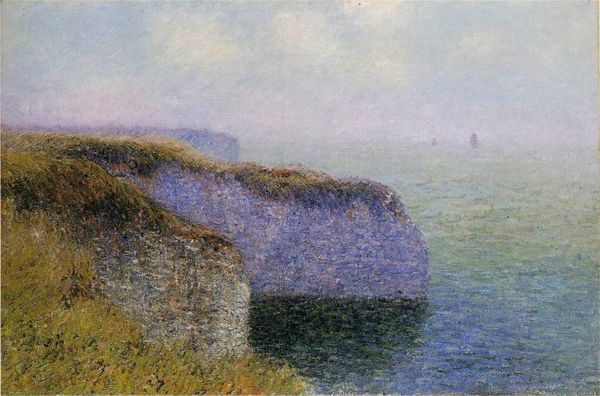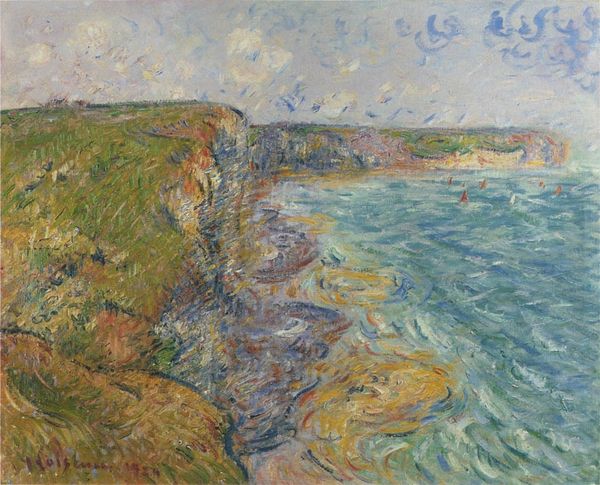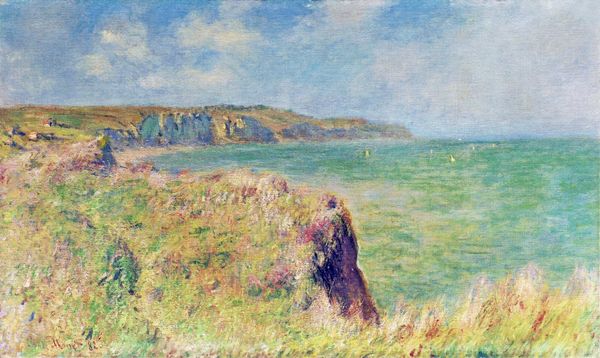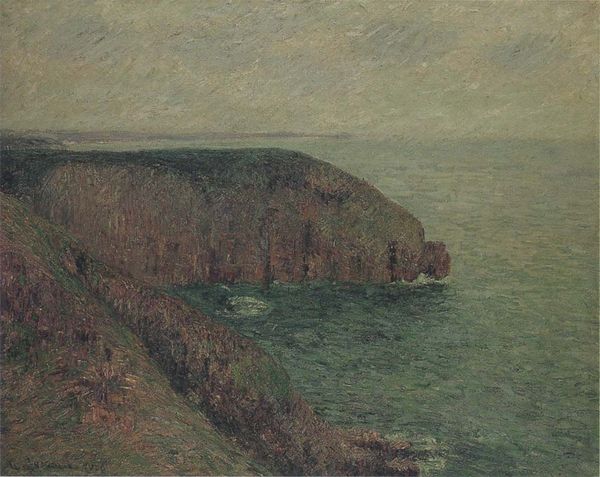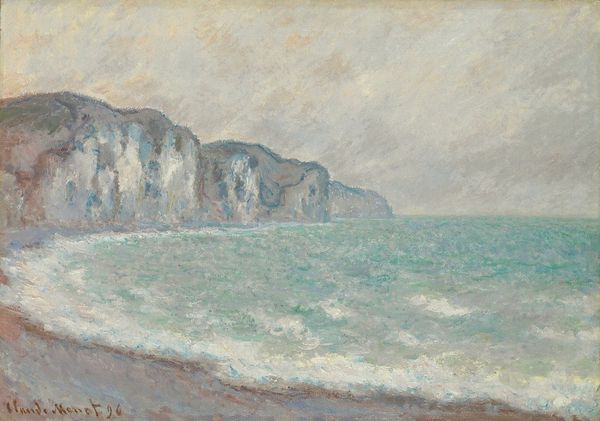
#
cliff
#
abstract painting
#
head
#
impressionist landscape
#
possibly oil pastel
#
nature
#
oil painting
#
ocean
#
rock
#
acrylic on canvas
#
mountain
#
naturalistic tone
#
seascape
#
coastline landscape
#
watercolor
#
sea
Dimensions: 60.5 x 74 cm
Copyright: Public domain
Editor: So, this is Gustave Loiseau’s "Cliffs at Saint Jouin," painted in 1908. It looks like an oil painting, and I'm immediately drawn to the rough texture and the way the light plays on the water. What stands out to you in this piece? Curator: What's striking is the application of paint itself. Look at the impasto – thick daubs that describe form not through illusionism, but through the sheer materiality of the paint. This was the height of industrial pigment production; these readily available, intensely colored paints impacted the possibilities of the landscape genre. Editor: That’s a good point! The availability of materials influencing artmaking. I hadn't really considered that. It’s more than just what he depicts; it's about what was available to him to depict. Curator: Exactly! Think about the canvas too. A manufactured product, made possible by the textile mills. Consider the labour involved in creating that support, priming it, stretching it. Loiseau isn't just depicting nature; he's engaging in a dialogue with the industrial revolution through his materials and production methods. Editor: So, you're saying the social and industrial context of the time is baked into the artwork itself, through the very stuff it's made of. Does this suggest a new understanding of Impressionism, beyond just capturing light? Curator: Precisely. It forces us to re-evaluate the period, seeing it not just as a focus on fleeting impressions, but also as a commentary on the burgeoning industrial landscape and the evolving means of artistic production and consumption. The ready availability of canvases, premixed paints, and easels had a large role to play on what artists decided to focus on. Editor: I see! I will definitely keep this in mind. Thanks for this interpretation. Curator: Likewise; I hadn’t thought of his labour in quite that way before!
Comments
No comments
Be the first to comment and join the conversation on the ultimate creative platform.
